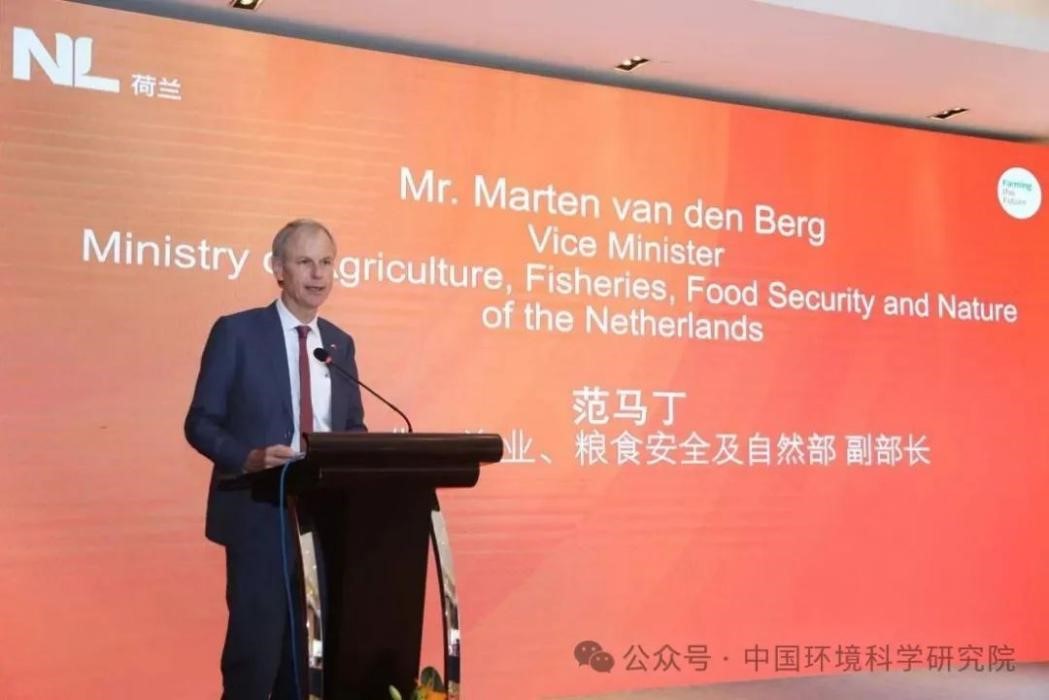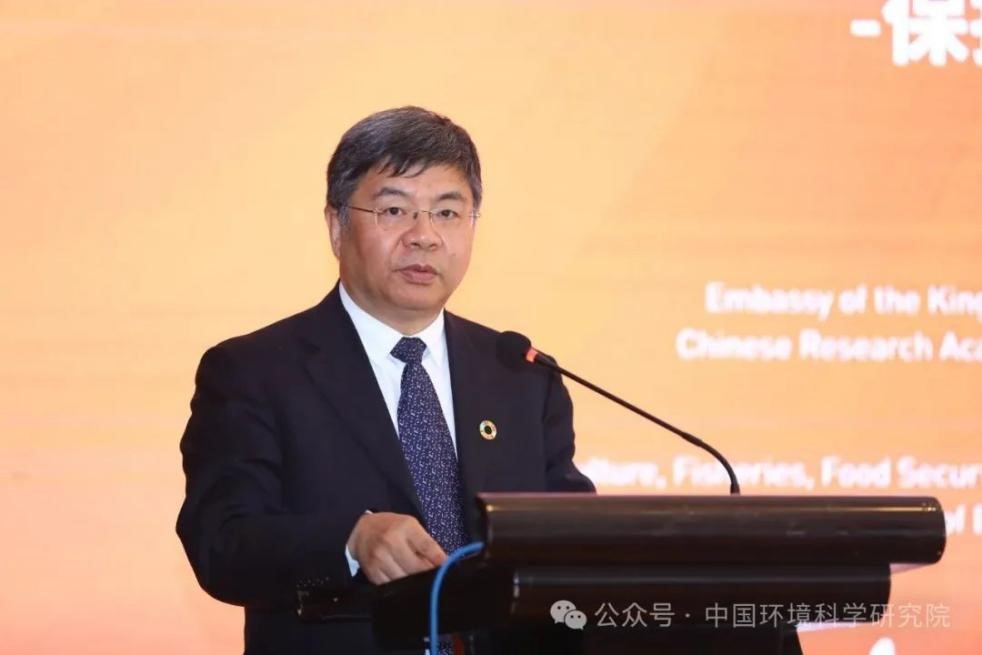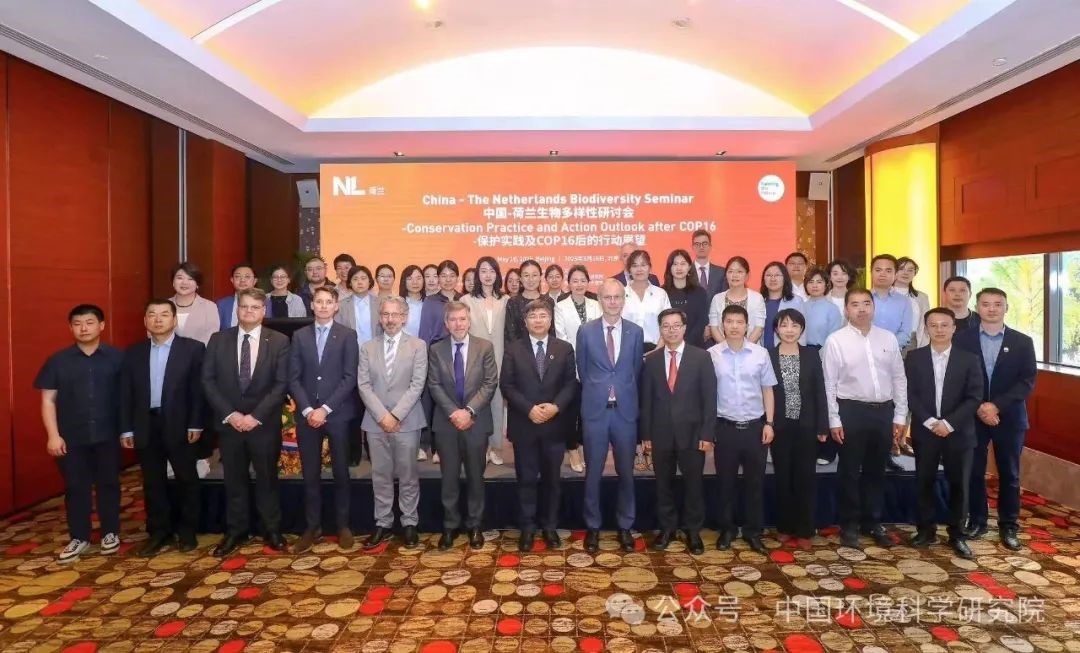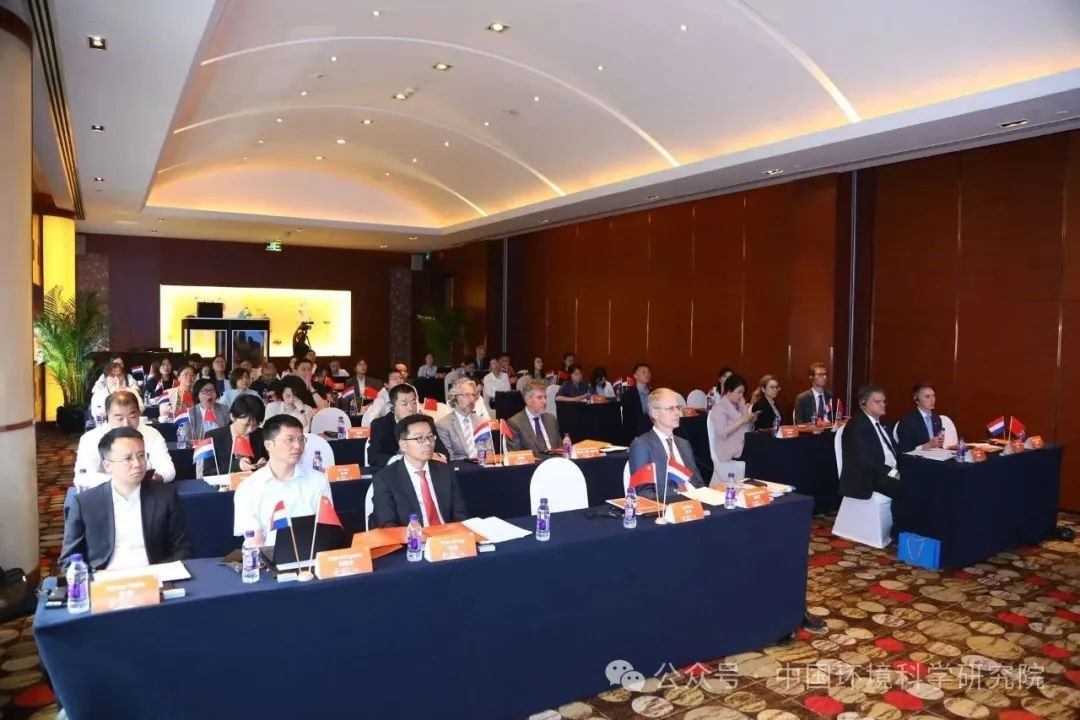
Beijing, May 16, 2025 – The Chinese Research Academy of Environmental Sciences (CRAES) and the Embassy of the Kingdom of the Netherlands in China jointly hosted the China-Netherlands Biodiversity Seminar in a hybrid format in Beijing today. Guided by the Ministry of Ecology and Environment of the People’s Republic of China (MEE) and the Ministry of Agriculture, Fisheries, Food Security and Nature of the Netherlands (Ministry of LNV), the seminar focused on the theme “Conservation Practice and Action Outlook after COP16.” Nearly 60 guests attended, including representatives from both governments, experts from research institutions, business leaders, and members of international organizations. The event served as a platform to discuss global pathways and innovative approaches to biodiversity conservation.
The opening ceremony was chaired by Chen Sheng, Vice President of CRAES. In his opening address, Van der Berg, Vice Minister of LNV, highlighted the Netherlands’ valuable contributions to global biodiversity governance through systematic policy frameworks and innovative practices. Liu Ning, a Level-1 Inspector from the Department of Nature and Ecology Conservation at the MEE, reviewed China’s leadership role at COP15 and shared progress on implementing the Kunming-Montreal Global Biodiversity Framework. Both speakers also presented case studies showcasing their countries' policy experiences in implementing the Convention on Biological Diversity.

Marten van der Berg, Vice Minister of Agriculture, Fisheries, Food Security and Nature of the Netherlands, delivers a speech.

Liu Ning, a Level-1 Inspector from the Department of Nature and Ecology Conservation at the MEE, delivers a speech.
Representatives from Chinese and Dutch research institutions engaged in in-depth discussions on key ecological conservation and sustainable development topics, including biodiversity research hotspots, genetic resources, and agricultural biodiversity. Corporate representatives shared innovative models from multinational companies and local agri-food sectors in ecological conservation and carbon reduction. Environmental experts from the MEE provided insights into biodiversity policies development and the progress of business alliances. International organizations such as the FAO and UNEP participated both online and onsite, exploring mechanisms for global environmental governance.
At the closing ceremony, Liu Ning emphasized that the seminar had established a collaborative “policy-research-practice” platform to support follow-up actions after COP16. Erik Smidt from the Embassy of the Kingdom of the Netherlands in China highlighted the commitment to deepening Sino-Dutch policy and technological cooperation to jointly address ecological challenges.

A group photo of the Chinese and international representatives attending the seminar
Held on the eve of International Day for Biological Diversity (May 22), the seminar brought together representatives from the FAO, UNEP, WWF, as well as Chinese and Dutch research institutions and enterprises. Through the multi-sector dialogue, participants enhanced their scientific understanding of biodiversity and affirmed a shared commitment to “turning consensus into action,” laying a solid foundation for pragmatic China-Netherlands cooperation in advancing biodiversity efforts.

Site of the Seminar